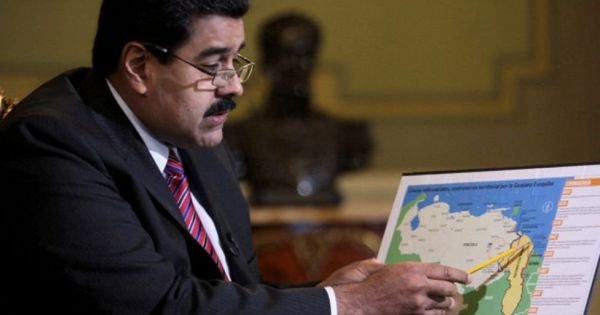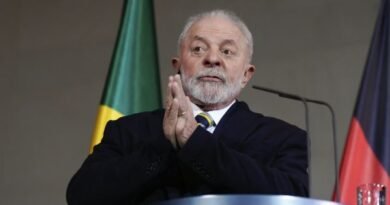Will Maduro attempt to take over Guyana’s Esequibo? Brazil sends troops to the area
[ad_1]
Will Maduro attempt to take over Guyana’s Esequibo? Brazil sends troops to the area
Uruguay’s deployment in Antarctica will deepen cooperation with Spain, Colombia, The Netherlands, Ecuador, Germany, Argentina, the United Kingdom, and Chile, among others
Brazil announced “intensified defensive actions” along its northern border fearing a possible invasion of Guyana by the dictatorial regime of President Nicolas Maduro in Venezuela. This Friday the UN International Court is expected to halt a referendum, on a disputed area between the two neighbors, which is seen as an exercise in forced annexation by Venezuela.
The Brazilian Ministry of Defense said it has been “monitoring the situation” and Brazilian intelligence officials allegedly believe a Venezuelan invasion to the disputed Esequibo region is not to be discarded.
At issue is the region of Esequibo sprawling over 61,000 square miles, equivalent to nearly two-thirds of Guyana’s territory, but Venezuela claims the entire area as its property.
Venezuela argues its historical boundaries extended to the Essequibo River but the land was taken away during the British colonial era. The U.S. government of the 1890s believed Venezuela had a legitimate claim that should be resolved through arbitration, and rejected Britain’s more expansive claims, but finally left the bulk of the Essequibo within Guyana’s borders.
With time the Essequibo region has proven extremely valuable. The British were after gold but subsequent explorations revealed the land is a superstore of minerals, including copper, iron, nickel, tungsten, and bauxite.
Besides the hills are sprinkled with diamonds, too, and in the 2000s offshore explorers, mainly EXXON struck oil. There are 46 known oil fields in the region, four of them discovered in just the past year. Geologists believe its total oil reserves could exceed 11 billion barrels.
On Sunday, Venezuela plans to hold a referendum on seizing the entire Essequibo region and turning it into a Venezuelan state. Dictator Nicolas Maduro has mobilized his socialist regime to get the referendum passed.
Guyana has asked the International Court of Justice (ICJ) to intervene and halt the referendum, which it describes as an exercise in forced annexation.
Even when Essequibo’s indigenous people may have some problems with the government of Guyana, they do not see themselves as Venezuelans, contrary to propaganda claims made by the Maduro regime.
In September, Guyana called for bids from six oil companies to develop offshore fields in the Essequibo region. Venezuela denounced the bidding as “illegal” and accused Guyana of trying to “allocate maritime areas pending delimitation between both countries.”
The U.S. State Department stood behind Guyana, endorsing its right to develop its own natural resources and rejecting Venezuela’s “efforts to infringe upon Guyana’s sovereignty.”
Guyana’s President Mohamed Irfaan Ali said that, “our overall strategy is that there is nothing to be alarmed about. There is absolutely nothing to fear. We are doing everything in accordance with international guidelines, and we believe that Venezuela will not act recklessly.”
The Organization of American States (OAS) joined the U.S. and Canada in opposing Venezuela’s referendum, so many observers believe Maduro will back down from annexing or invading the Essequibo, even if his referendum passes.
International commentator speculated in mid-November that Maduro simply wants to exploit the border crisis to “solidify the legitimacy his authoritarian regime,” “gain political capital,” and “brand the opposition as traitors.”
But regardless of actual intent, Maduro should remember several failed cases of territorial annexation to salvage faltering regimes which demonstrate how ephemeral military nationalism really is; the Greek military Junta when it tried seizing Cyprus in the seventies; the Argentine Junta’s 1982 invasion of the Falklands, and Saddam Hussein’s 1990 invasion of Kuwait.
[ad_2]
Source link




